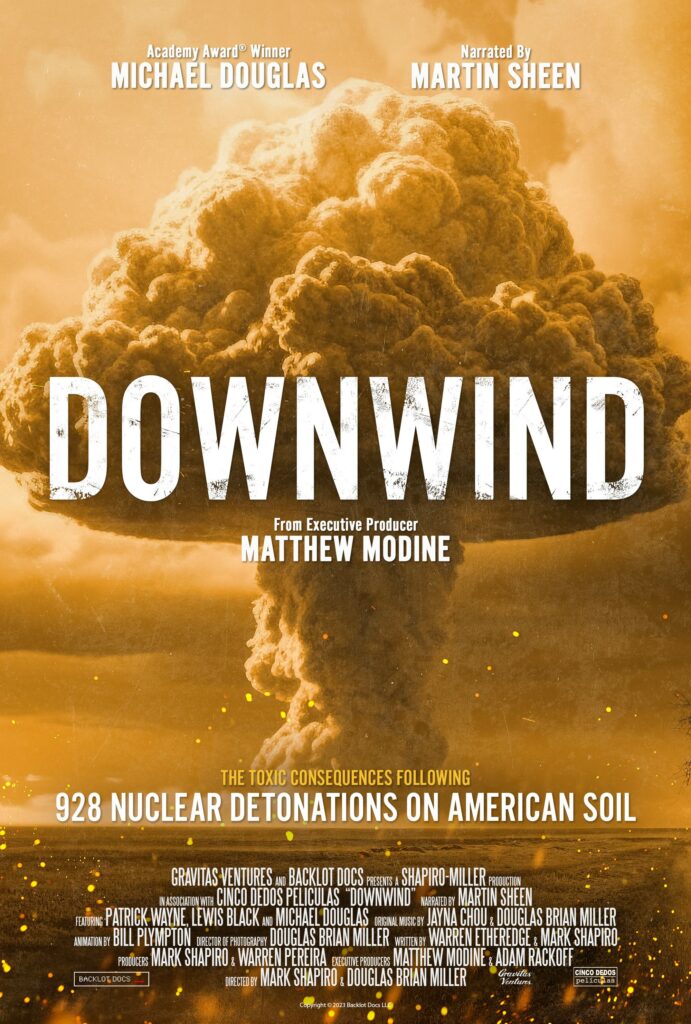Post-Election Direction: what now? View on YouTube
View on YouTube Thursday, December 5, 2024. 7:00 pm. It was an election like no other: polarizing, ugly, passionately contested. The results suggest a realignment of U.S. politics and a rightward shift in national policies and priorities. Yet most our greatest concerns were invisible during the campaigns. This panel and audience discussion of the election and its implications for our work, took place on Zoom only, thanks to a December snow storm. We addressed Palestine, the growing risk of nuclear war, the iron grip of the military-industrial complex, climate change, Latin America and immigration, and party politics. Panelists: …
Israel’s Illegal Nuclear Weapons Program and the USA’s Complicity: Documentation and a Case for Stopping All Military Aid
By Terry Lodge For the full article on this sordid history, with 27 links to original sources, click here. Below is a summary. Israel is presently violating, and has for at least 47 years actively violated U.S. federal laws which prohibit the provision of U.S. military assistance to a nation that possesses nuclear weapons but refuses to sign the Nuclear Nonproliferation Treaty of 1968 (NPT). Israel is believed to possess from 90 to 200 nuclear warheads and is capable of delivering a nuclear warhead from 4000 miles away. Israel has acquired the Bomb wholly outside of international legal controls…
We Support CWRU Students’ Rights to Free Speech on Campus
Cleveland Peace Action supports Case Western Reserve University students in their stand for free speech on campus, especially around the conflict in Israel-Palestine. We should mention that many leaders in Cleveland Peace Action are alumni of the University. Today’s students, including Students for Justice in Palestine and allied student groups, stand in a long tradition of legitimate on-campus protest, going back at least to the Vietnam War. Editors at the Observer have recently made a compelling case for student free speech on campus. Retribution by the Administration or onerous rules that block any prompt response to breaking news, inhibits…
Civil Disobedience at Toledo’s Air National Guard base goes UNARRESTED
Tuesday, September 10, 2024, by Terry Lodge….. Demanding No U.S. defense of the Israeli Genocide!, this afternoon Veterans for Peace and Northwest Ohio Peace Coalition staged a demo at the entrance to the Toledo Air National Guard base at Toledo Express Airport this afternoon. As we arrived at 3 PM, I delivered a letter of demands to a sergeant who tried to explain to me that he was not authorized to accept mail. He finally took it as we departed. See Toledo Blade coverage for photos We arrived with five people who were willing to risk arrest. The entry…
Missed our Sept 3 screening? Here’s how to view this “must-see” film.
Currently you can stream “Downwind” on Amazon Prime Video, Peacock Premium, Amazon Prime Video with Ads, or for free with ads on The Roku Channel. Hiroshima. Nagasaki. Mercury, Nevada? The latter was the site for the testing of 928 nuclear weapons on American soil from 1951 to 1992. The fallout is still lethally impacting Americans today.
From Oppression to Liberty in Sudan and Palestine
Community Circle Around Gaza returns to the Root Cafe with a focus on the violence and famine in Sudan & updates on Palestine justice actions. Sara and Selma will present their stories w/video shorts of Sudanese history & cultural expressions, & discussion. Suggested Donation $10 to benefit Emergency Response Rooms (ERRs) in Sudan @ The Root Cafe, 15118 Detroit Ave, Lakewood, OH 44107 August 29, 2024, 5:30 pm – 7:30 pm Please RSVP to Clevelandpeaceaction@gmail.com
From the A-bomb to Abolition: View on YouTube
The current threat of nuclear war may now exceed Cold War levels. How worried should we be? Where are the flashpoints? Israel and Iran? Russia and Ukraine? How can risk be reduced? View on YouTube Panel discussion Thursday, August 15, 2024 at 7 pm. In person at Pilgrim Congregational Church, 2592 W.14 St, Cleveland, OH 44113 and on Zoom Panelists:Daryl G. Kimball, Executive Director, Arms Control Association, Washington, DCTerry Lodge, Northwest Ohio Peace Coalition and Cleveland Peace ActionKenneth Mayers, Co-founder, Santa Fe Chapter, Veterans for Peace
Finding a Path to Peace: from the A-bomb to Abolition
In observance of the 79th Anniversaries of the atomic bombings of Hiroshima and Nagasaki, we are pleased to announce a Cleveland exhibition on loan from the Dayton International Peace Museum. This Hiroshima/Nagasaki Exhibition runs from August 8th to 24th, from 4 to 8 PM, every Thursday, Friday and Saturday at Pilgrim Congregational Church ,2592 W.14 St, Cleveland, OH 44113. Open to the public. Groups of 8 or more, please call ahead: 216-255-1576. The exhibition offers photos and sketches by Japanese artists of the aftermath of the atomic bomb on two Japanese cities, Hiroshima and Nagasaki in1945. They illustrate civilians…



